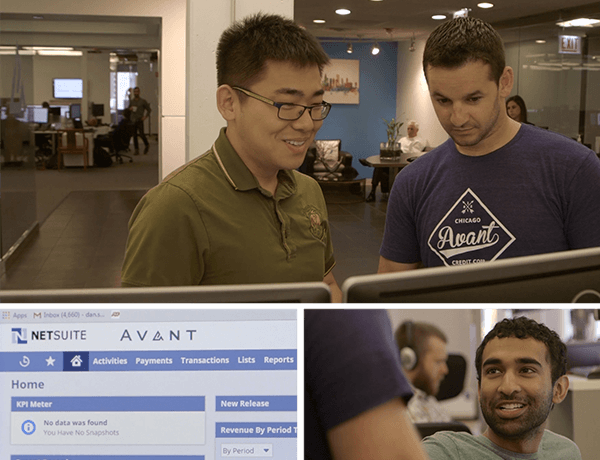Avant
Avant Powers Global Growth with NetSuite
Founded in 2012 in the wake of the credit crisis, Avant is among the alternative financing companies transforming the traditionally staid financial services industry. Avant’s easy online application process and advanced algorithms measure credit risk across more than 500 different metrics which have helped it reach triple digit growth rates since it was founded.

COMPANY
Avant
LOCATION
Chicago, Ill.
INDUSTRY
Financial Services
EMPLOYEES
500
NUMBER OF USERS
10
NUMBER OF COUNTRIES
US, UK
“NetSuite gave us the agility to adapt to change and the scalability that we needed. It’s been critical to entering new markets quickly, efficiently and effectively”

Innovation Fuels Rapid Growth
SUCCESS STRAINS EXISTING SYSTEMS
Amidst its rapid growth, Avant needed business management software that could consolidate its global financial operations with the same sophistication Avant brings to its credit scoring process, while providing complete trust in the data and rigorous controls expected by auditors.

STREAMLINED REPORTING WITH CUSTOMIZED WORKFLOWS
After a rapid, two-month implementation of NetSuite OneWorld, Avant can now make data-driven decisions with real-time access to KPIs. Streamlined financial reporting saved an estimated $120,000 per year while the SuiteCloud Development Platform, lets the business tailor workflows.

POISED TO CONQUER GLOBAL MARKETS
With OneWorld’s support for 190 currencies, 20 languages, automated tax compliance in over 100 countries and the ability to quickly spin off subsidiaries, Avant is poised to extend its disruptive business across the world. It has expanded from the US into the UK and Canada and is now targeting other geographies.


































